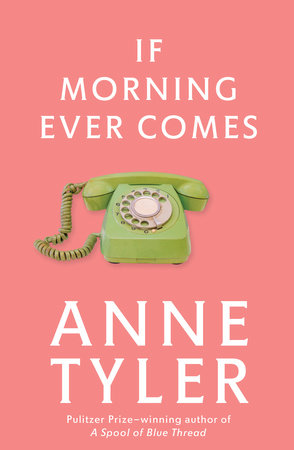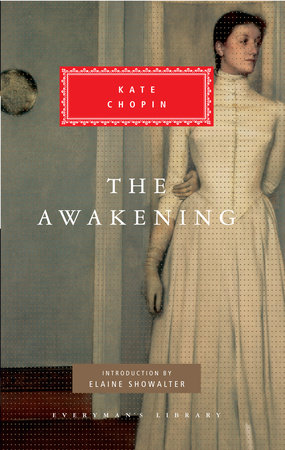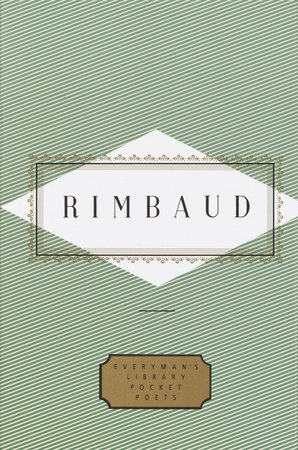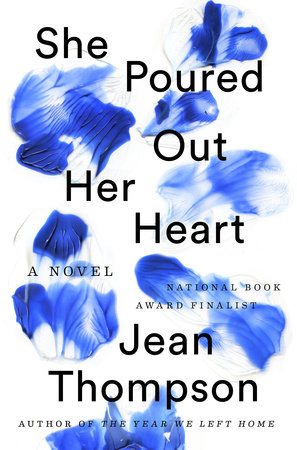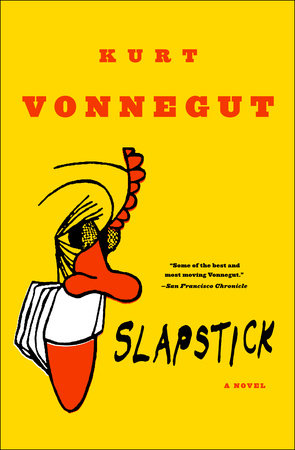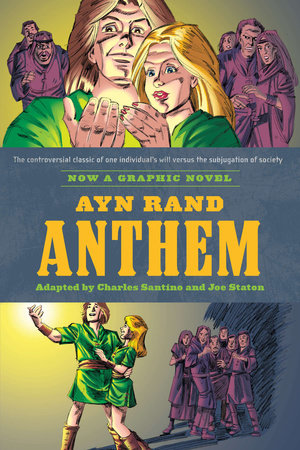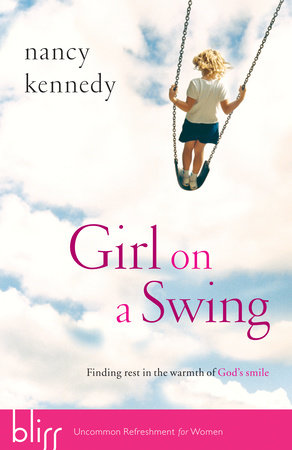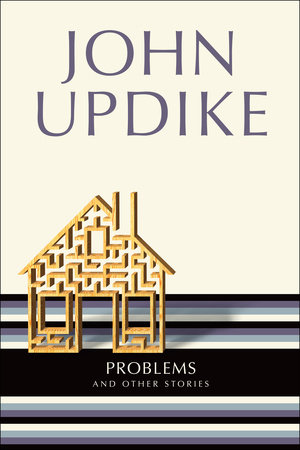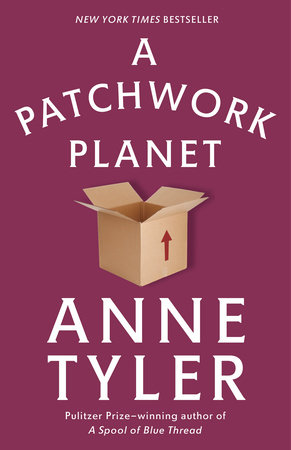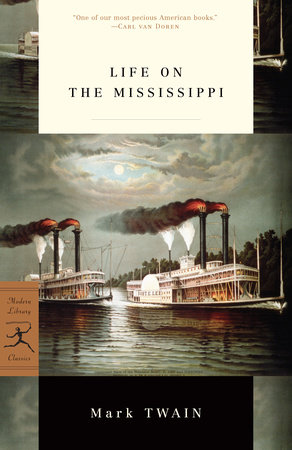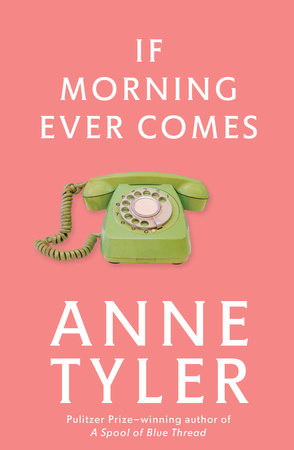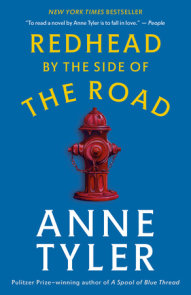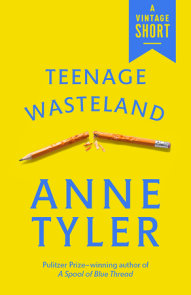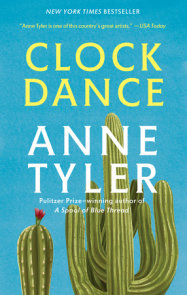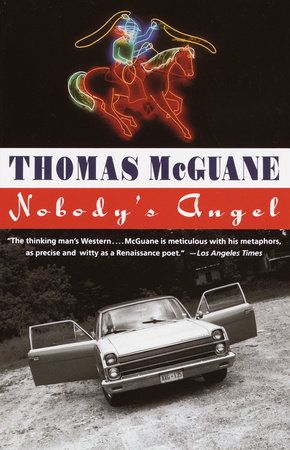Author Q&A
A Conversation with Anne Tyler
Michelle Huneven lives in California and is the author of
Round Rock and Jamesland.
Michelle Huneven: Was this your first book? Had you
written fiction before? In 1964, creative writing was
barely a college-course subject let alone a major or Ph.D.
degree. That said, did you study writing in college?
When did you first think of becoming a writer?
Anne Tyler: If Morning Ever Comes was the second book
I wrote but the first to be published. (I’d written an earlier
novel toward the end of my last year in college.) My
major was Russian, oddly enough. Writing was just a
sideline, something I indulged in purely for fun while I
waited to see what I was going to do with my life.
MH: Where were you when you wrote If Morning Ever
Comes?
AT: I was newly married, working as a Russian bibliographer
at the Duke University Library, when I wrote the
first few chapters. Then we moved to Montreal, and after
our plane landed, I forgot to claim the suitcase I’d packed
my manuscript in. I realized it about a week later, but I
decided it wasn’t worth the cab ride to the airport. Some
time after that my husband went to the airport to meet a
friend and thought to reclaim the suitcase from lost luggage,
and then because I couldn’t find work for six
months, I ended up finishing the novel just to entertain
myself.
MH: What were the first seeds of this novel? How did you
come to write it from the stance of Ben Joe, a twentyfive-
year-old male? How long did it take you to write?
AT: My husband used to talk about a friend he’d made
when he first came to this country from Iran—a young
hospital orderly who was the head of a household of
many, many rather feckless sisters for whom he felt
personally responsible. I enjoyed fantasizing about that
situation.
Adopting a male point of view was an act of defiance,
in a small way. One of my teachers claimed that men
could write from a woman’s viewpoint because they’d
been raised by women, but women couldn’t write from a
man’s viewpoint because they didn’t have the same intimate
association with their fathers. I thought he was
wrong, wrong, wrong.
It’s my recollection that the book took me nine
months to write. In those days I didn’t rewrite—didn’t
even seriously think, it seems to me now, and that’s why
it was such a short process.
MH: There are, it seems, many themes and concerns in
If Morning Ever Comes that you’ve continued to explore
and build on in the fifteen other novels you’ve written in
the last forty years. What, to your mind, are some of
these? What are the themes and concerns you’ve left
behind?
AT: I guess I do see some continuity in the issues of
insider/outsider, of rootedness in a certain place, and of
how much right we have to intrude in others’ lives
or attempt to change them. But the fact is that If
Morning Ever Comes almost seems to have been written
by a stranger; I’ve moved so far away from most of its
concerns.
MH: If Morning Ever Comes feels more Southern to me
than many of your more recent Baltimore-set novels;
there are African-American characters, and it has more
of a small-town feel. It reminds me of Eudora Welty. Was
she an early influence? Who were other early influences?
Were any other of your early novels set deeper in the
South?
AT: Now I am astonished by how very Southern the
book is, or “Southron,” as a writer friend and I used to say
derisively whenever we thought a novel’s Southernness
seemed to be its main quality. I don’t believe the South
is still so distinct a culture nowadays, although the book
seems to me a faithful portrait of the way things were at
the time.
Eudora Welty was an enormous influence. I thank her
for giving me the idea that the world I was living in—
a world very similar to hers—was a fit subject for literature.
And I believe that some of the tone of voice in
If Morning Ever Comes owes a clear debt to the world’s
best writing teacher, Reynolds Price. His style was very
contagious. When I was his student, back in 1958
through 1960, every last one of us wrote short stories
that sounded like a combination of Reynolds Price and
J. D. Salinger, if you can imagine.
My first three novels were set in North Carolina—this
one plus The Tin Can Tree and A Slipping-Down Life. My
fourth, The Clock Winder, described a young woman in
transition from North Carolina to Baltimore. By that
time I’d been living in Baltimore for several years; I guess
it took me awhile to make my own transition, internally.
MH: What was it like to be such a young novelist? How
did you cope with reviews—which, from what I’ve
found, were largely positive, but several still had that
penultimate paragraph of complaint? What early habits
and stances adopted as a young novelist have lasted your
entire career?
AT: I was so naive; I don’t remember thinking much at
all about being a young novelist, and I didn’t understand
for years how lucky I’d been to land with Alfred A.
Knopf and my wonderful editor, Judith Jones, who is still
my editor to this day. I think I just assumed that everyone
who wrote a novel would be published sooner or
later.
The reviews I don’t remember, except that one person
said the book was “about as exciting as a cucumber
sandwich,” which hurt my feelings at the time but now
seems apt.
I had no work habits, no discipline, no system at all in
writing my early books, and I believe it shows. All of that
came later.
MH: What are your feelings about If Morning Ever
Comes now, as you look back at it after writing so many
other books? Have you reread it in recent years?
AT: I reread it just so I could answer these questions, and
I’m amazed that it was ever printed. It’s a book by someone
who doesn’t yet have anything to say.
MH: The psychology of the Hawkes family is beautifully
understated yet accurate and timeless in its insights.
Which to you are the most intense/devastating/memorable
moments in the book?
AT: I was touched by Shelley and intrigued by Joanne,
who, I see, is not an entirely virtuous character; I’m surprised
I was capable of that much complexity. But I wonder
if I liked Ben Joe’s mother back then as much as I do
now. Now she seems strong and admirable and dignified,
while back then, I believe, I meant for her to seem
unnaturally cold. (Funny how that works. Now that I’m
grown, I find Melanie in Gone with the Wind much more
likable than I did in my youth.)
MH: The title comes from a passage in the novel—but
why did you you choose this specific title and passage?
Did you have any other ideas for a title?
AT: I always planned to use that title somewhere, after
hearing a family friend tell the story that introduces the
phrase. I don’t think it has much relevance to this particular
novel, to be honest.
